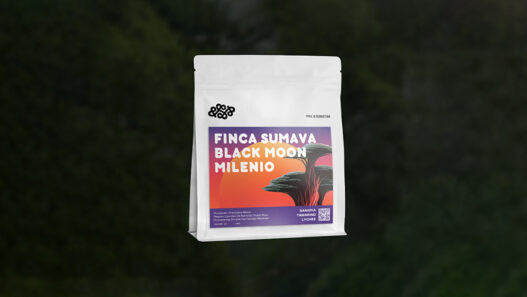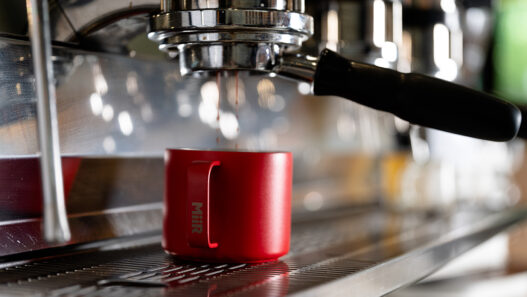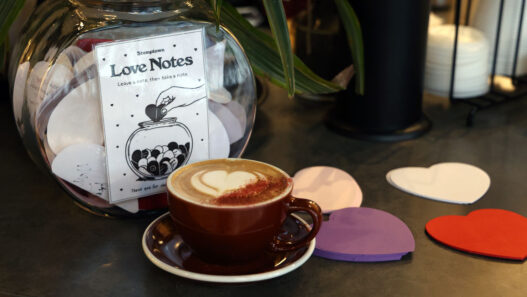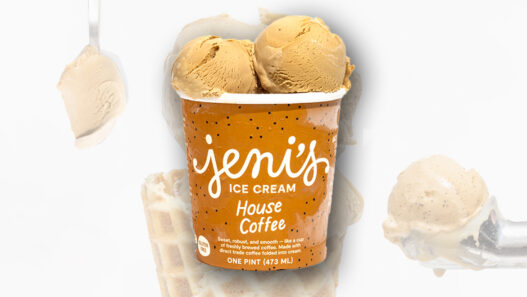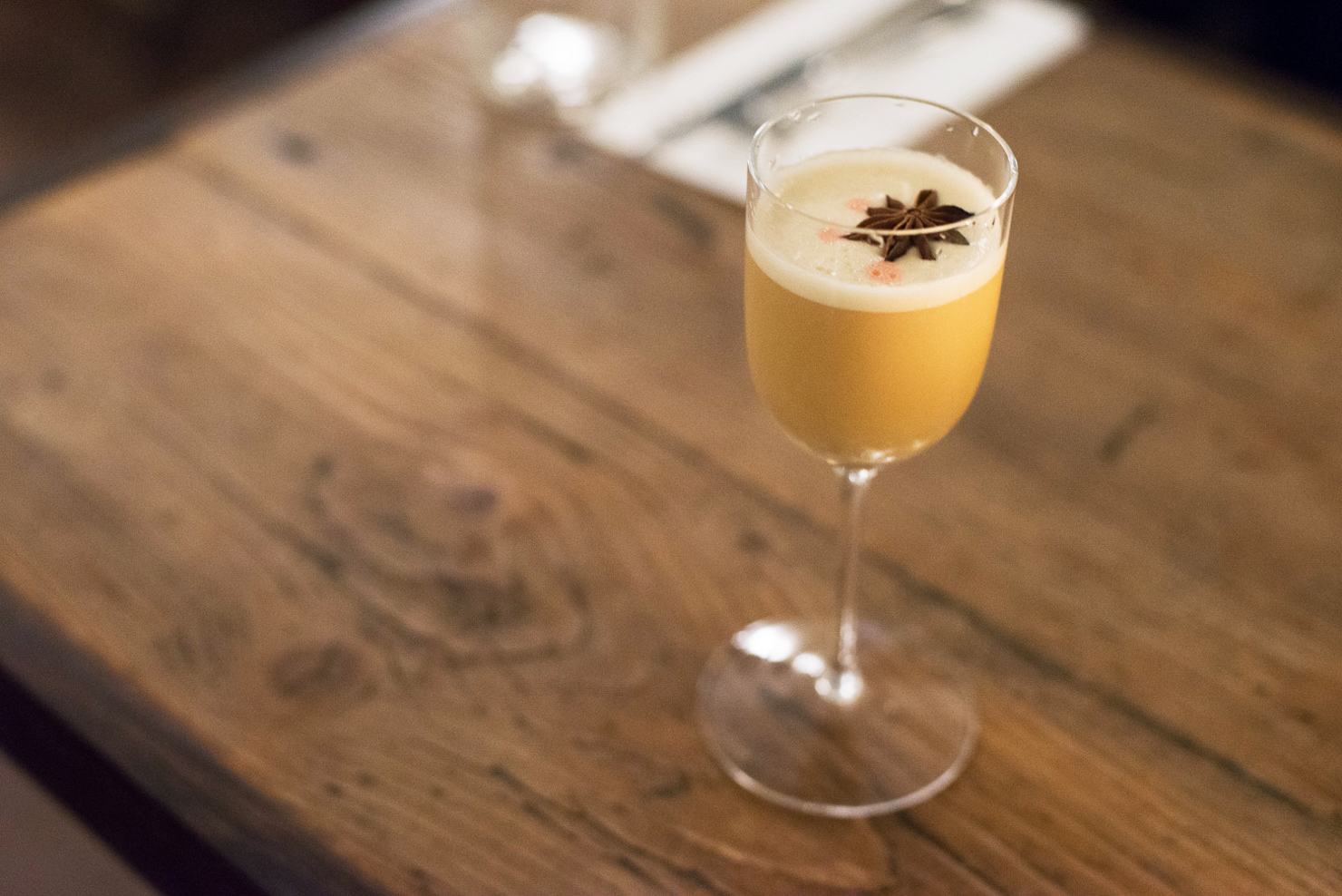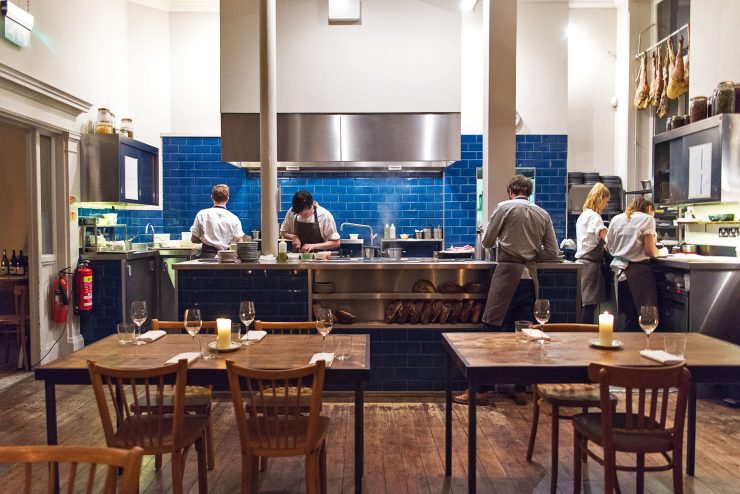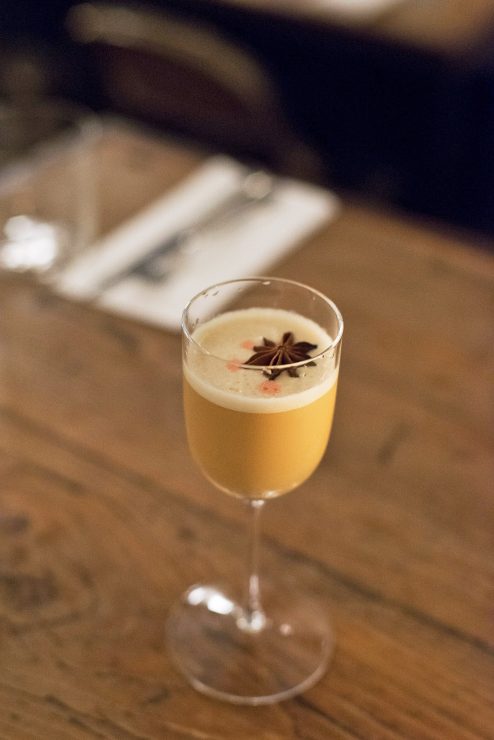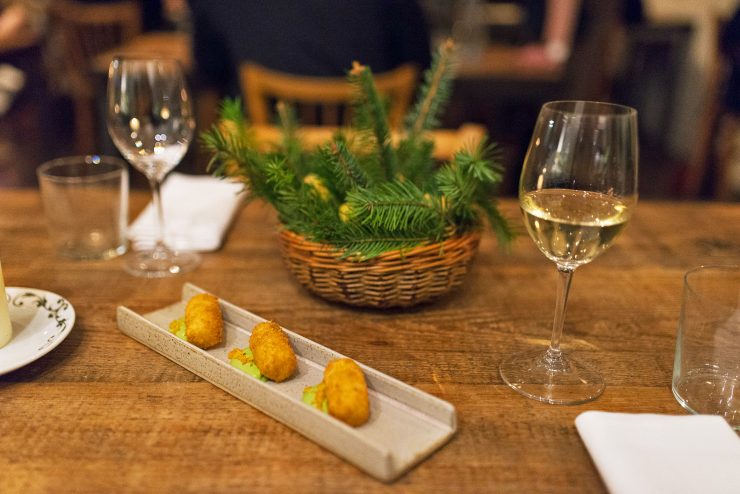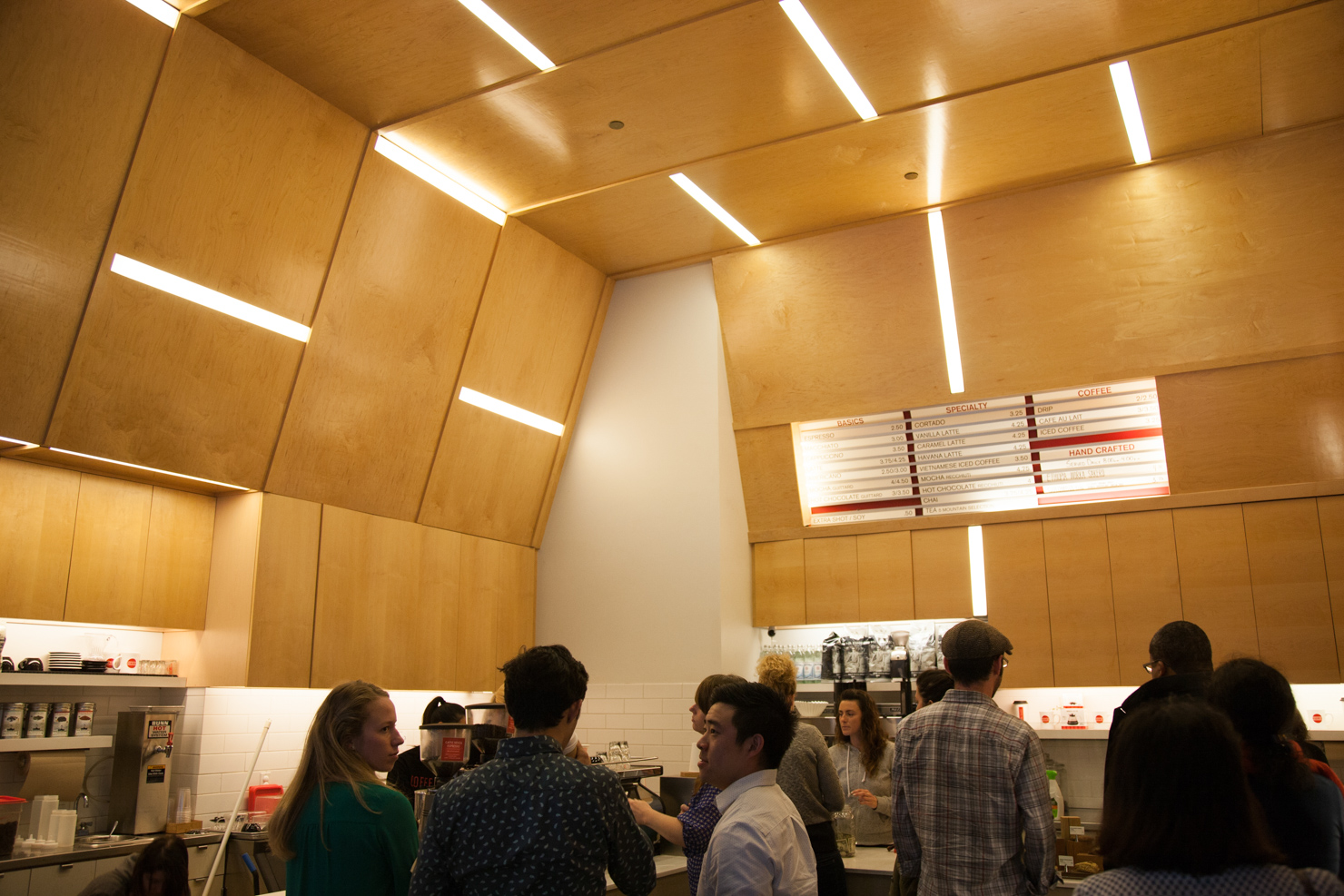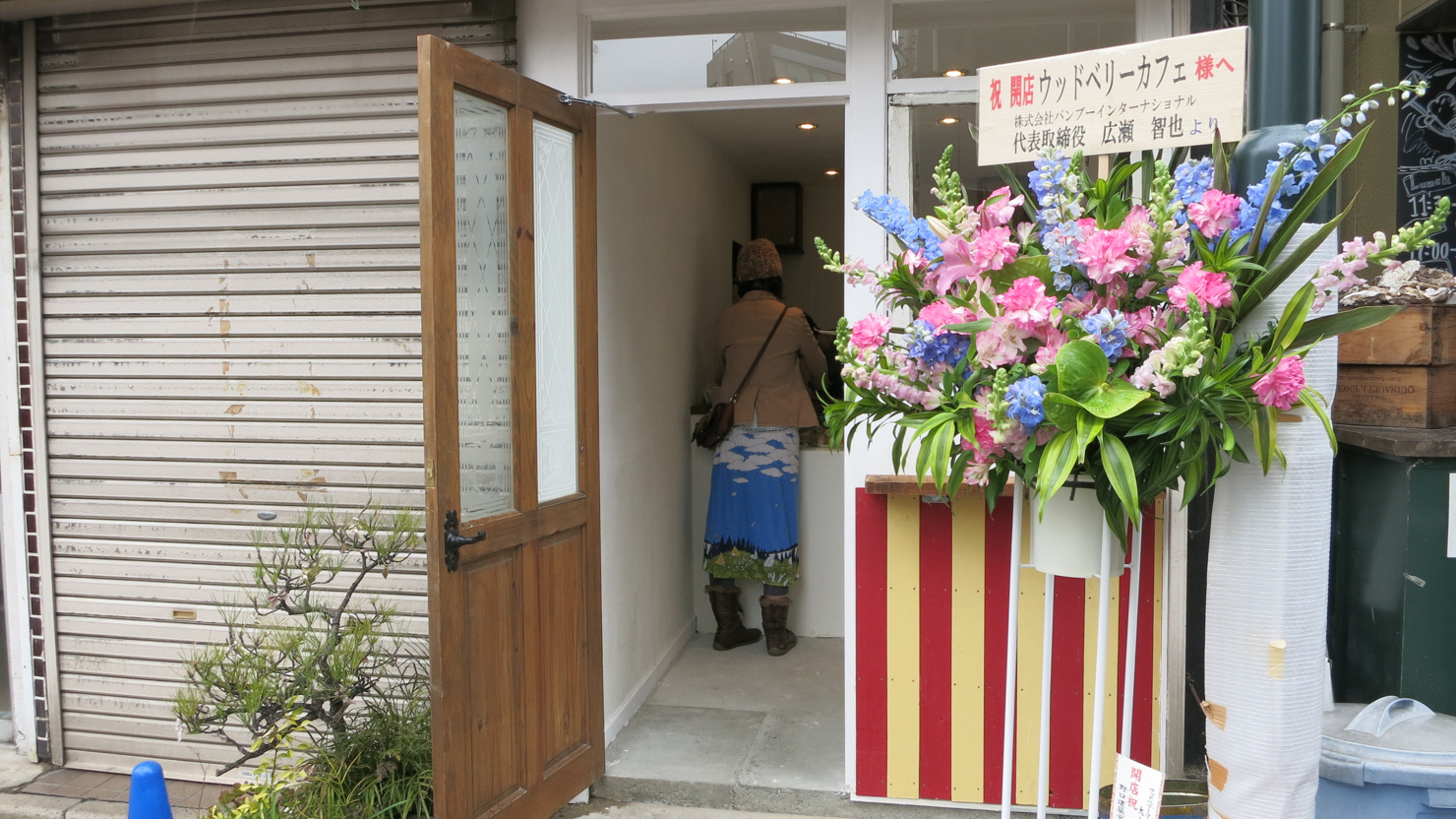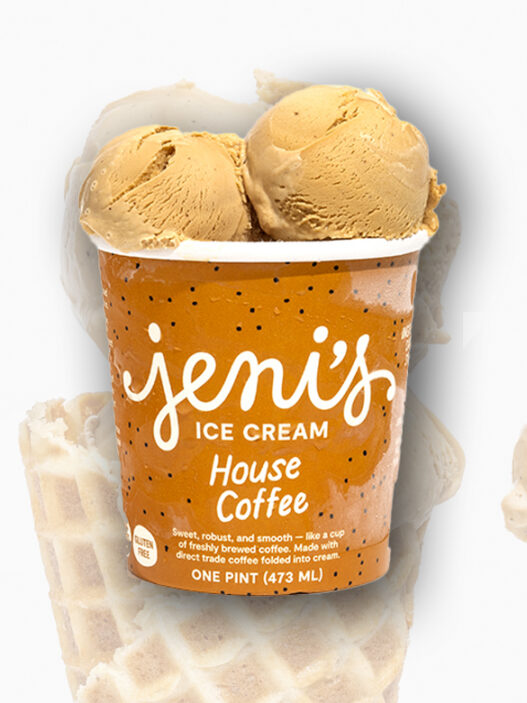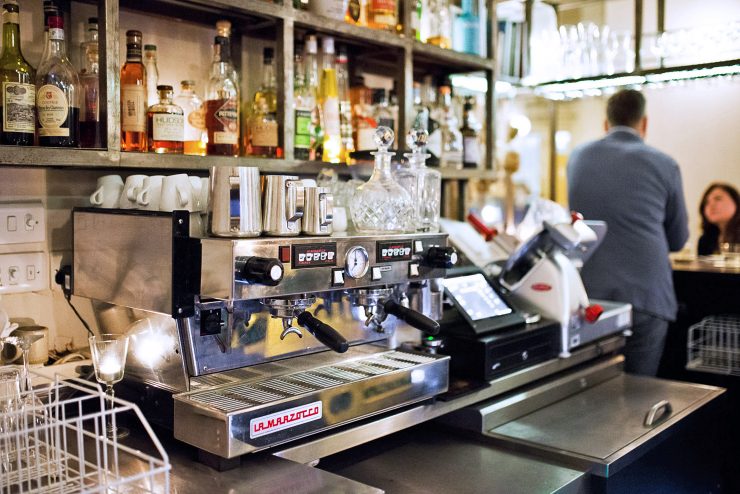
The Clove Club in East London pulls off no small feat. Neither fussy nor vainglorious, it’s a restaurant dedicated to the customer’s sensory enjoyment, paying extraordinary attention to details and ingredients. Skilled sourcing of raw materials is credited to a killer head chef, Isaac McHale. The restaurant’s hyperfocus won it a Michelin star last September.
Conceived in apartment-based supper clubs and gestated in a residency above The Ten Bells in Spitalfields (as part of the Young Turks), Johnny Smith, Daniel Willis and ex-Ledbury Isaac McHale made this wing of Shoreditch Town Hall their permanent home in early 2013. I’m a fan. The food is remarkable, and the beautiful bar is a place I’d park myself in any mood.
Smith, Willis and McHale care to extremes about what is placed before a customer—and this includes coffee. The La Marzocco Linea stands sparkling clean on the bar, and the staff can make you an espresso that has a thought process that goes far further than glib grind ‘n’ tamp.
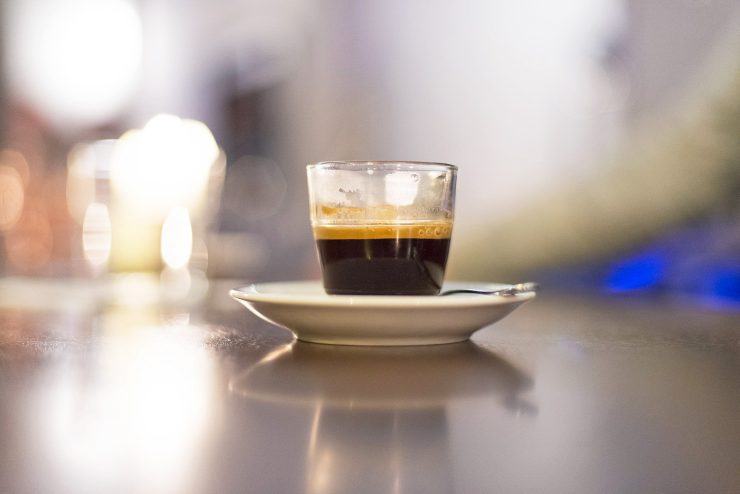
Recently, coffee-conscious customers have tapped on the shoulder of the restaurant world and asked for a little more than, say, Nespresso. The growing response has been to complete a quality-focused menu with quality coffee. The first version of The Clove Club featured French press service courtesy of Square Mile way back when—because those ingredients mattered from the start.
“Even in the days when we used to do pop-ups at our flat we used to do a coffee service,” says co-owner Daniel Willis. “And from that point on it has always been a focus on trying to make it good. Back then we couldn’t do espresso at The Ten Bells, so we did French press”.
Once established, Willis says they looked to consumer needs: “As it was our first restaurant, we figured we needed to do espresso. Even when you go right back to when we started at the flat, when it was considered cool to have DJs doing playlists and the like it was still our parents and aunties and our mates and their families. That was one of the pressures we had in terms of espresso; it was a very broad demographic and maybe some of those people would feel slightly disappointed and feel robbed of that end to their meal they always have. We thought—why would we take that away from them?”
Within a mile of The Clove Club, coffee establishments are plentiful (Embassy East, Allpress, Ozone, Brooklyn Coffee et al). In an area like Shoreditch with a variety of customers and a certain kind of fashionable rep, Willis says “I think it’s a balance. I think we’ve always been labelled with the hipster brush, from when we opened, which I always thought was a load of bollocks. I think it’s outdated to refer to Shoreditch as a hipster area because a few people here have beards. In terms of our personal tastes and potential clientele, that is always the balance; the push and pull. You can’t just do exactly what you want and we always have considered what our guests like and the feedback. Before you open your restaurant, you don’t know what the demographic is going to be.”
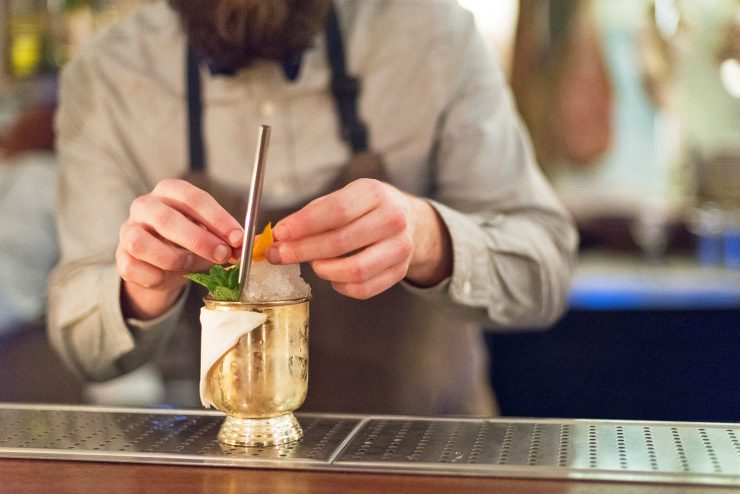
Bar manager Shane Kilgarriff oversees beverage output at The Clove Club. Previously Kilgarriff ran a filter coffee stand at food markets “viewing coffee as a completely different product—more like tea” and is a regular patron of his local cafe, Browns of Brockley. His view of coffee went from indifference to pleasure because “it wasn’t what I expected coffee to be. I never liked coffee until I started going to independent cafes in London. I remember reading the Jay Rayner article about that; I remember thinking I cannot understand what he’s talking about. To me, those really super dark-roasted coffees are bitter and acrid and really difficult to palate. But I get that a lot of people actually expect that from coffee, so when it’s not like that it can be a bit unusual.”
The Clove Club currently uses Workshop Coffee Cult of Done espresso—light on perfume, cranberry-sweet. The coffee’s clean, juicy character features in a recent coffee cocktail addition to the menu. The “Danish Coffee” has aquavit, apricot brandy, homemade soured cream, and a half-shot (17-ish ml) of espresso topped with a piece of charred star anise. Enough coffee to add a dusky tinge and support the acidity of the drink—a brighter brew means fashioning cocktails that marry acidities.
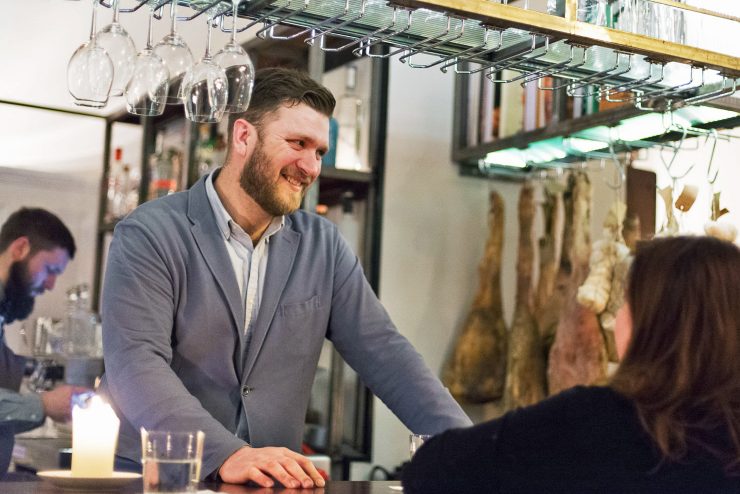
Is a focused coffee service welcome on Kilgarriff’s bar? “Bartenders historically hate making coffee, but I think that’s mostly to do with ignorance rather than thinking it’s inferior. I think they don’t place the correct importance on it,” says the barkeep. Training from the roastery has been integral when it comes to instilling the importance of the perfect brew. Espresso is tasted throughout the day, with doses and yield guides for staff to work with. “It’s comforting for people who felt less comfortable with it” says Kilgarriff, “because it gave them tangible benchmarks as to what they need to be doing. It appeals to the nerdy side of the staff, weighing stuff out as you go. Even when we’re slammed we do it the same way.”
Speciality coffee also matches the ethos of The Clove Club—Kilgarriff would use nothing else as “it’s probably closer to the way they treat their ingredients in the kitchen, because a light roast is closer to the original raw material. In that respect I think it makes more sense as a general narrative of the restaurant. I think it brings out more interesting qualities of the bean; it’s less one-dimensional. Occasionally people ask where beans are from; that gives us an opportunity to let them know that the coffee is seasonal; people don’t associate seasonality with coffee necessarily”.
Kilgarriff says that despite cafes having the advantage in terms of time and management “its important to offer it well. Not many restaurants have completely nailed it for that reason, and we would like to really nail it.”
The Clove Club is taking part in ongoing work by restaurants to serve excellent coffee. The shift in the industry is evidenced by the likes of Noma in Copenhagen and Lyle’s here in London, known for their fine coffee offerings. Daniel Willis is modest about current service and the ongoing improvements: “I think we are a little bit behind in coffee in terms of our restaurant peers. It’s one of those things that has become increasingly important to us to prioritise, and to make it happen. Staff enjoy the attention given to the espresso”. Willis is looking at a shift to filter coffee service, too.
“I want to move to a single group [espresso machine] and have some interesting coffees and some drip brews—or however we achieve it—[served with] no milk. Plus we’ll never do takeaway coffees here. It’s going to help us maintain standards.” As to the growing appearance of speciality coffee in his industry over recent years—“Restaurants? They’ve gone coffee nuts.”
Nico Halliday is a Sprudge.com contributor based in London. Read more Nico Halliday on Sprudge.
All photos by Giulia Mule for Sprudge.com.




